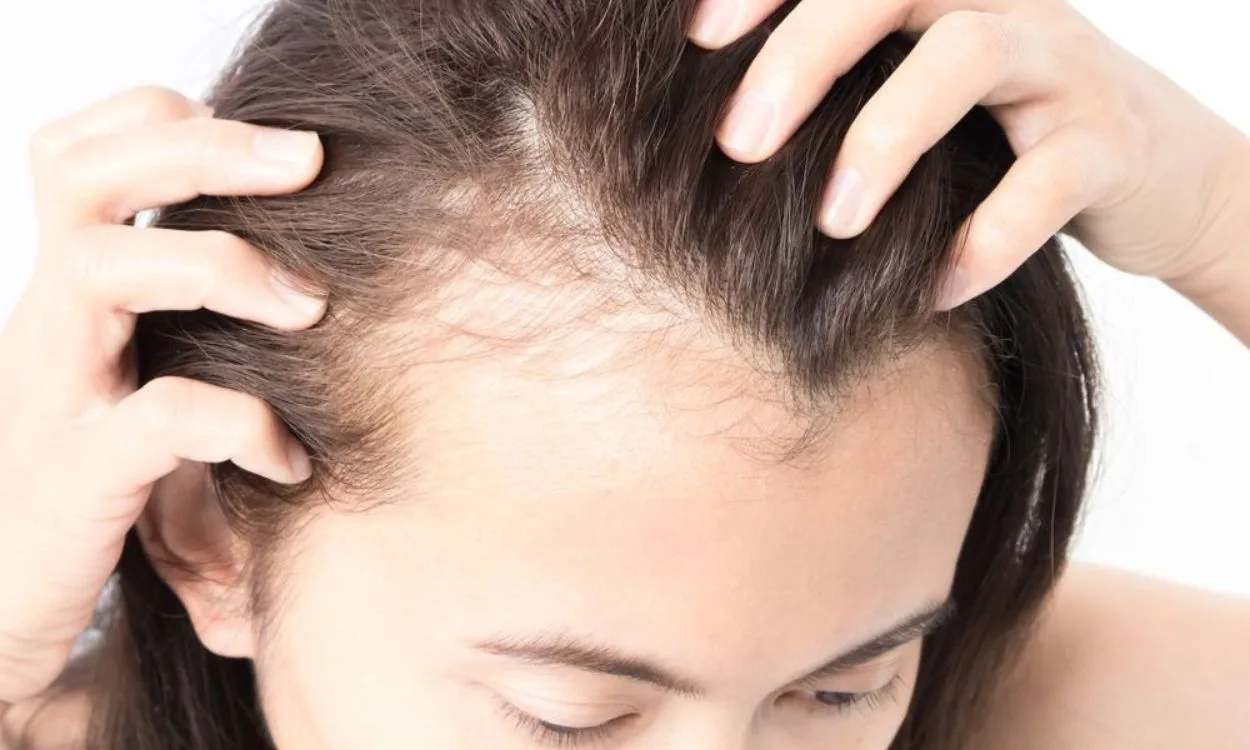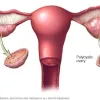Can PCOD Cause Male Pattern Baldness in Women?
Polycystic Ovary Syndrome (PCOS) is a common endocrine disorder affecting women of reproductive age. It is characterized by hormonal imbalances, irregular periods, and the development of small cysts on the ovaries. While PCOS is primarily known for its impact on fertility and menstrual health, it can also manifest in a range of other symptoms and complications, one of which is male pattern baldness in women. In this comprehensive guide, we will explore the relationship between PCOS and male pattern baldness in women, its causes, symptoms, and potential treatments.
Understanding PCOS and Its Effects on Hair Health
- PCOS is associated with elevated levels of androgens, commonly known as male hormones, in women. These high androgen levels can lead to a condition called hyperandrogenism, which is characterized by symptoms such as acne, hirsutism (excessive hair growth), and male pattern baldness. Male pattern baldness, or androgenetic alopecia, is a specific pattern of hair loss that typically begins with thinning at the crown and temples. While it is more commonly associated with men, it can also affect women, particularly those with hormonal imbalances like those seen in PCOS.
The Link Between PCOS and Male Pattern Baldness
- The exact mechanisms behind the link between PCOS and male pattern baldness in women are not fully understood, but it is believed to be related to the influence of androgens on hair follicles. Androgens can shrink hair follicles, leading to shorter and finer hair, and eventually, to no new hair growth. This process follows the same pattern as male pattern baldness in men, hence the term “male pattern baldness” when it occurs in women with PCOS.
Symptoms and Diagnosis
- Women with PCOS who experience male pattern baldness may notice a gradual thinning of the hair, particularly at the top of the scalp and along the part line. This can be accompanied by an increase in hair shedding and a more visible scalp. It is important to note that not all women with PCOS will develop male pattern baldness, and the severity of symptoms can vary widely among individuals.
- Diagnosing male pattern baldness in women with PCOS typically involves a thorough medical history, physical examination, and sometimes blood tests to assess hormone levels. Dermatologists and endocrinologists play a crucial role in accurately diagnosing and managing this condition.
Treatment Options
Addressing male pattern baldness in women with PCOS often involves a multi-faceted approach. This may include:
- Hormonal Management: Balancing hormone levels through medications such as oral contraceptives or anti-androgen medications.
- Topical Treatments: Using topical minoxidil to promote hair regrowth.
- Lifestyle Modifications: Adopting a healthy lifestyle, including regular exercise and a balanced diet, to manage PCOS symptoms and promote overall well-being.
- Stress Management: Practicing stress-reducing techniques as stress can exacerbate hormonal imbalances.
It is essential for individuals with PCOS and male pattern baldness to seek personalized medical advice and treatment from qualified healthcare professionals.
The Fitpaa Connection
- While managing PCOS and its related symptoms, including male pattern baldness, requires a tailored medical approach, lifestyle modifications can play a significant role in improving overall health and well-being. Fitpaa, an end-to-end AI-driven metabolism monitoring and management technology, offers a holistic solution to support individuals with PCOS in achieving their health and fitness goals. By leveraging the latest research in Lifestyle Medicine and Behavioral Therapy, Fitpaa aims to optimize metabolism and strengthen all organ systems, including the endocrine system, which is particularly relevant for individuals with PCOS. Through personalized Fitpaa Capsules, incorporating medical therapy, exercise therapy, nutrition therapy, and cognitive behavior therapy, individuals can work towards their health and fitness goals with comprehensive support and guidance.
- The Fitpaa app provides real-time guidance, habit-building techniques, and personalized tools to help individuals follow their tailored health and fitness plans. With a focus on sustainable lifestyle changes and holistic well-being, Fitpaa aligns with the needs of individuals managing PCOS and its associated symptoms, offering a comprehensive approach to optimizing health and achieving fitness goals.
In conclusion, while PCOS can manifest in various symptoms, including male pattern baldness in women, it is essential to seek professional medical guidance for accurate diagnosis and personalized treatment. By addressing hormonal imbalances, adopting healthy lifestyle practices, and leveraging supportive technologies like Fitpaa, individuals can take proactive steps towards managing PCOS and optimizing their overall well-being.
If you are seeking a comprehensive solution to support your health and fitness journey, especially in the context of PCOS, download the Fitpaa app today. With a dedicated team of fitness planners, nutritionists, fitness trainers, and doctors, Fitpaa offers personalized, goal-oriented services with a focus on lifetime results and guaranteed outcomes. Take the first step towards a healthier, more balanced lifestyle with Fitpaa – your partner in achieving holistic well-being.
This blog article aims to provide detailed insights into the relationship between PCOS and male pattern baldness in women, offering a comprehensive understanding of the condition and potential treatment options. Additionally, it highlights the role of Fitpaa in supporting individuals with PCOS through its holistic approach to health and fitness management.









